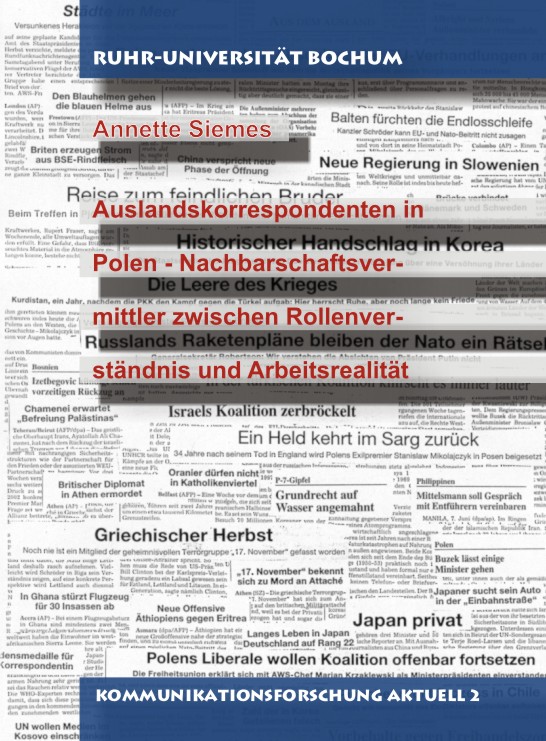
Auslandskorrespondenten in Polen
Product Information
Product Description
Daily we find in the media various reports about other countries. But who stands behind them and what processes take place before a report about another country appears in the media, about this little is known. The contents of international reporting are relatively well researched. Foreign correspondents, however, are still considered 'unknown beings' in communication research, which deals with journalists and their professional understanding. The position of foreign reporters suggests that they substantially decide which images of other countries are presented to us in the media. But the process in which media statements about other countries come about is shaped by numerous factors. How the role that foreign correspondents should play or would like to play in their profession can be reconciled with their work reality is illuminated by Annette Siemes in her study, which originated at the Department of Journalism and Communication Science at Ruhr University Bochum. As a particularly interesting example, the author examines the correspondents of German media in Germany's neighboring country and the EU accession candidate Poland. The book offers as an introduction a brief overview of research on foreign reporting and foreign correspondents and explains what theoretical and methodological considerations lie behind the study. This forms the basis for a partially standardized survey (quantitative-qualitative methods mix), in which the Poland correspondents were interviewed about their views on tasks and goals of their own work. Furthermore, the author questioned the correspondents about the contacts between them and the recipient editorial offices in Germany – because the correspondents do not decide alone what reports about Poland reach the media. The majority of correspondents does lean toward the currently favored image of foreign correspondents as 'cultural interpreters'. But most see only small chances to fulfill this role in the network of a media system in which topicality, lack of space and similar factors co-determine the selection and processing of news. And the interests of the recipient editorial offices in Germany are also often driven by more pragmatic requirements than the noble goal of neighborhood or cultural mediation guided. Thus news agencies set topics on the agenda of reporting and increases e.g. the relation of a topic to Germany the chance of publication. The role which the correspondents play in this network is far from as powerful as a first glance would suggest. But they know the 'rules of the game' according to which foreign reporting emerges, and can try to influence the formation process in their interest. The study can help to understand reporting about other countries as medially created 'reality' that comes about under the influence of regularities which are not or not primarily bound to factual, country-related contents. The book offers through the provided insights 'behind the scenes' a compass as well as food for thought for all those who frequently deal with media reports about other countries.
Series Information
Current Communication Research (2)